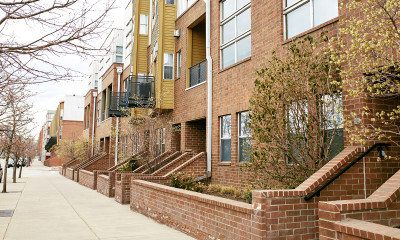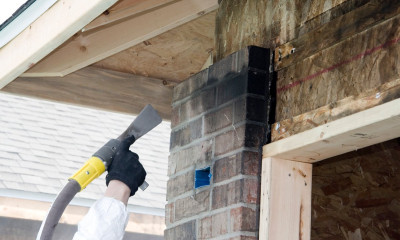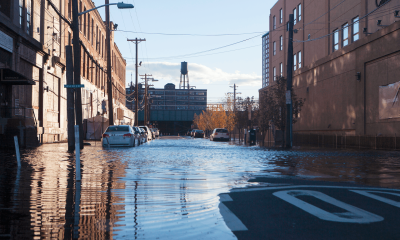4 Ways to Ensure a Proper Settlement for Lost Rent Claims
Lost rent, a form of lost income after a business interruption, is a very common issue after disasters like a fire, flood or water damage, hail, or a collapsed roof due to snow or wind storm. While a lost rent claim is fairly simple, owners of multi-family housing units, hotels, or individuals with rental property can face problems with their insurance company not paying the proper amount for lost rent or income. Accurate assessment of loss of rents is but one key skill of a seasoned public adjuster.
Public adjusters have the knowledge and expertise to properly calculate and settle insurance claims for lost rents. The professionals at Adjusters International/MBC (AI/MBC) have developed expert methods to estimate lost rent claims and get business owners the settlement they are entitled to receive.
1. Extended Period of Indemnity
Most owners of apartment buildings, hotels, or multi-family housing have business interruption/lost rent coverage in their insurance policy. In addition, some policies include an extended period of indemnity which covers lost rents after the reconstruction providing the owners cash-flow as they return to pre-loss occupancy.
After a disaster, affected buildings will need to be repaired, cleaned, and/or renovated depending on the extent of damage. This process of claim adjustment, while repairs and rebuilding are underway, is called the period of restoration. Following the period of restoration, should your policy include it, is the extended period of indemnity. This coverage can last from 30 to 365 days, depending on your policy. Extended period of indemnity coverage covers lost rents and extra expenses for the period set in the policy. Extra expenses can include a marketing and advertising budget for the business to gain new tenants/clients after the disaster. It’s important to be familiar with your policy(s) and know what types of coverage you have in place before disaster strikes.
In specific cases, there may be other coverages that can be applied to aid in a business’ financial recovery. For example, AI/MBC handled a property insurance claim for a major hotel chain in Durango, Colorado. , There was a large fire in the area, and while the hotel itself was not badly damaged, it lost a lot of business because of the fire’s effects on tourism in the surrounding area. Here, AI/MBC's expert public adjusters were able to utilize the policy’s loss of attraction coverage. The loss of attraction coverage in the hotel’s policy entitled the owners to lost rent payments for the decrease in guests.
2. Transitional Vacancy
When the insurance company is determining the amount of lost rent, they will pull vacancy reports for the building to determine the number of occupied units. While hotels have ready access to daily, weekly, and monthly reports, apartments, multi-family, and other properties with monthly leases generally record vacancies in the rent rolls. Although these are necessary reports, they often do not reflect the actual vacancy rate since a high-demand property may only see transitional vacancies of two or three days between tenants. A public adjuster can help businesses accurately calculate (and communicate) their vacancy rates and avoid penalties from their insurance company.
Transitional vacancies are when units are unoccupied for a brief amount of time in between tenants and should not lower the vacancy percentage. A public adjuster can help a property owner calculate their vacancy rates based on transitional vacancies, resulting in a more accurate lost rent settlement.
3. Rent Increases
Typically, the insurance company will use the rent rates that were in place whenever the damage occurred to calculate lost rent. However, this does not account for rent increases. Once a lease has expired, landlords will often raise the rent and this differential needs to be accounted for when calculating lost rent. Public adjusters can help with this calculation by looking at current market prices in the area and historical rent rate data from the landlord to prove if an increase was intended prior to the disaster.
Rent increases can also be applied to a facility that is damaged before its planned renovation as rents will often increase after a big facility remodel. In the case of a 55+ living facility in Littleton, CO, AI/MBC was called to help after the property suffered a fire right before the start of major renovations. AI/MBC's public adjusters were able to quickly navigate the claim so the facility could expedite construction, make the renovations, and increase rents in accordance with the remodel.
4. Saved Expenses
When an insurance company calculates a lost rent settlement, saved expenses – water, electric, or maintenance costs that the insurance company might assume do not need to be paid if the building has fewer or no tenants - are deducted from the calculated lost rents. . However, the reality is that these expenses may continue.
During a construction or restoration period, electric bills frequently increase as the construction company uses the building’s electric to power their equipment. For water, even if there is no usage, there is still a bill that needs to be paid to keep the water available for the building.
Even if a building is not occupied due to damage, maintenance costs including landscaping, plumbing (between the building and the street), snow removal, parking lot upkeep, etc., are still incurred. In addition, if a building was damaged but is still partially occupied, the alarm systems might be off or in repair, meaning business owners will need to implement a fire watch system with a patrol on watch 24/7 for fires or other emergency issues. The cost of these expenses can be quite high, making it important to include them in your claim calculations.
Though lost rent claims seem simple, there are many details and nuances that must be accounted for in the development of a fair and equitable claim settlement. The public adjusters at AI/MBC, can help landlords and owners of hotels or multi-family properties, as well as homeowners with rental properties negotiate with their insurance company to get an accurate lost rent settlement.
Should you have questions or if you would like to set up a consultation with a public adjuster, contact 888.321.5200 or visit ai-mbc.com and we’ll be happy to assist you.













